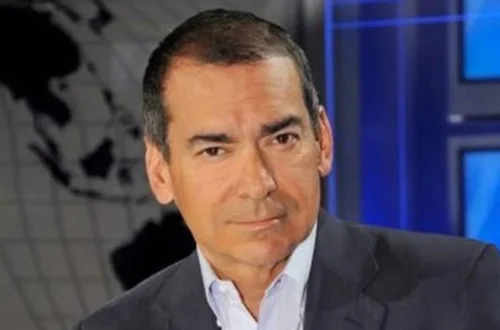Ormond Beach, FL– Rick Derringer, the celebrated guitarist, singer-songwriter, and producer whose music shaped generations and transcended genres, has died, Best known for his explosive guitar riffs and signature sound, Derringer’s career spanned over six decades, leaving an indelible legacy on the rock and pop music landscape. He was 77
According to a statement, Derringer died at 8:09 PM on May 26th at Advent Health ICU, surrounded by his beloved wife Jenda Derringer, his caretaker, and longtime friend Tony Wilson, also known as Young James Brown.
Born Richard Dean Zehringer on August 5, 1947, in Celina, Ohio, he rose to prominence in the mid-1960s as a member of The McCoys. Their debut single, “Hang On Sloopy,” quickly climbed the charts to become a number-one hit in 1965, solidifying Derringer’s place in rock history.
From those early garage rock days, Derringer’s musical evolution was marked by both innovation and versatility. He launched a successful solo career in the 1970s with the release of the now-classic “Rock and Roll, Hoochie Koo,” a track that remains a staple of classic rock radio to this day. But his impact didn’t stop there—Derringer became a sought-after collaborator, performing and producing for an eclectic mix of artists including Johnny and Edgar Winter, Steely Dan, Alice Cooper, Cyndi Lauper, Kiss, Barbra Streisand, and “Weird Al” Yankovic.
His collaborations with the Winter brothers were particularly noteworthy, with Derringer contributing guitar work and production to Edgar Winter’s “Frankenstein” and “Free Ride”—songs that helped define the sound of 1970s rock and earned gold and platinum status.
Derringer’s influence extended beyond the traditional rock scene and into the world of sports entertainment. In 1985, he co-wrote and performed “Real American,” a rousing anthem that gained iconic status as the entrance theme for wrestling superstar Hulk Hogan during the World Wrestling Federation’s peak years. Originally intended for the tag team The U.S. Express (Mike Rotundo & Barry Windham), the song soon became synonymous with Hulkamania and the wrestling boom of the 1980s. Its cultural resonance endures to this day as one of the most recognizable themes in professional wrestling history.
He also contributed another memorable wrestling theme for the WWF tag team Demolition, showcasing his ability to adapt his rock sensibility to diverse platforms and audiences.
In addition to his musical prowess, Derringer proved himself a capable and creative producer. His work with “Weird Al” Yankovic on the parody hits “Eat It” and “Fat”—both Grammy-winning tracks—highlighted his unique ability to balance humor, musicality, and mass appeal. His influence quietly permeated multiple layers of popular music, often behind the scenes, but always unmistakably present.
Even in the later years of his life, Derringer continued to perform and tour, notably with Ringo Starr and His All-Starr Band. In 2010 and again in 2018 at the Hippiefest concert, he brought his seasoned energy to fans old and new. In 2019, he headlined the 50th Anniversary celebration of Jim Tarbell’s Original Ludlow Garage event in Cincinnati, playing to a crowd that honored both his longevity and enduring relevance.
Derringer’s passing was met with an outpouring of grief and remembrance from fans and fellow musicians. Rock band Foghat shared their condolences in a heartfelt tribute: “We just sadly heard that Rick Derringer has passed. We did many, many shows with Rick back in the ’70s. Our thoughts and prayers are with his wife, family & friends. RIP Rick.”
Those who knew him best remember more than his achievements. Friends and collaborators often spoke of his passion, work ethic, and an undying love for his craft. His career was not simply a collection of hits and high-profile collaborations—it was a lifelong expression of artistry and innovation.
Rick Derringer’s influence on music and culture is immeasurable. Whether as a chart-topping young guitarist, an innovative producer, or the voice behind one of wrestling’s most iconic themes, he remained committed to pushing musical boundaries. His life’s work spoke to both the rebellious heart of rock and the universal power of music to connect people across time and genre.
He is survived by his wife, Jenda Derringer, and a devoted circle of family, friends, and fans. His loss will be felt deeply, but his legacy will continue to resonate—in the notes of his songs, the memories of his performances, and the lasting impact of a career well lived.
Rick Derringer was, in every sense, a “Real American”—and a real artist.






